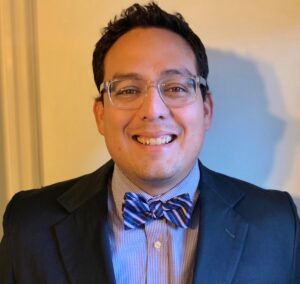
What They Don’t Tell You About Being a Hispanic/Latino Professor in the Deep South: Labeled
I was the only Hispanic student in my elementary school. In high school I was always in some kind of conflict because I was still the only Hispanic. My whole life I have had to learn to navigate a culture in which I stood out for various reasons. This in-betweenness has characterized my life since then. It is like living in the hyphen between Hispanic-American.[i] I have studied and gained my education where I was a minority. I have dealt with microaggressions and full-out aggressions of various sorts since I was a child. So now that I have a PhD and am a Director at the institution where I am employed, have things changed?
No. I am now the “Hispanic Professor.” Some students come to my class guarded and assume that I am “liberal” just because I am Hispanic. Some people have the audacity to think that I am a “token” professor and am here although I really did not earn my place. As Hispanic/Latin@ my point of view is not the same as theirs and naturally, since Hispanics do not have education and are not educated, my viewpoint carries less weight than that of other professors. As a corollary, my judgment as a program director is faulty since Hispanics don’t think. People come to my office and are surprised that I am “tall for a Latino.” I have been asked “Are you really Hispanic?” simply because I speak English relatively well. However, the question I am most often asked is, “Where are you from?” Like, “Where are you ‘really’ from?” It is as if people just want to pigeonhole me, label me, and keep me in their neat little place in their social constructs, especially that social construct that sees Hispanics as wetbacks, illegals, foreigners, and not truly American.
I read The Merchant of Venice in High School. The lines I remember most in this play are when Shylock the Jew states,
Hath not a Jew eyes? Hath not a Jew hands, organs, dimensions, senses, affections, passions; fed with the same food, hurt with the same weapons, subject to the same diseases, healed by the same means, warmed and cooled by the same winter and summer as a Christian is? If you prick us do we not bleed? If you tickle us do we not laugh? If you poison us do we not die? And if you wrong us shall we not revenge?[ii]
Shylock was making an important self-discovery. Was he a villain just because of his Jewish heritage? Did he not also have feelings, passions, and senses and live like everyone else? These lines help us understand Shylock’s posture throughout the play. But for me, they point to something that I have longed for since childhood. At some point, I want to be known by everyone as a fellow human being. I do not wish to be limited by my bronze skin, ethnicity, or the nationality of my parents and grandparents.
I am always mindful of Martin Luther King, Jr.’s speech, “I Have a Dream.”[iii] Please do not misread me, I have not faced any of the cruelties that he or those in the Civil Rights struggle did. Nevertheless, his speech is a constant reminder that our mental schemes need transformation. What hits home with me are these lines: “I have a dream that my four little children will one day live in a nation where they will not be judged by the color of their skin but by the content of their character. I have a dream today.”
This is the cruelty of our own society. We assume all kinds of mental and social constructs based upon the mere outward appearance of a person. The outward appearance is but one of the many dimensions of a human being. It does not account for the mind, the psyche, the spirit, or the soul of a person. It does not take into account the personal story of that individual and the experiences that have shaped him or her. It does not take into account the spirituality and faith of these people and the beauty and creativity of the Black Church, or the Latina Church.[iv] While a person’s phenotype may reveal some things, a common history, a common ancestry, it does not in and of itself define the totality of that human being. And as those who study humans know, humanity has a powerful soul that dares to dream, that challenges the status quo, that questions the way things are, that invites the divine to enter their lives to rearrange our brokenness into the image, likeness, and goodness of God.
So, I am one of the most educated Hispanics/Latinos in my community. I still am reminded on a daily basis of the need for humility and patience with my fellow human beings, who, having much less formal education than me, have pigeon-holed me into the mold of “the Hispanic professor.”
Notes & Bibliography
[i] Sarah Menkedick, “Living on the Hyphen,” October 14, 2014,
https://oxfordamerican.org/magazine/issue-86-fall-2014/living-on-the-hyphen. See also Justo González, Santa Biblia: The Bible Through Hispanic Eyes (Nashville: Abingdon Press, 1996), 79.
[ii] William Shakespeare, “The Merchant of Venice,” 3.1.57-66. References are to act, scene, and line. https://www.folger.edu/explore/shakespeares-works/the-merchant-of-venice/read/3/1/#line-3.1.57.
[iii] National Public Radio, “Read Martin Luther King Jr.’s ‘I Have a Dream’ Speech in its Entirety,” https://www.npr.org/2010/01/18/122701268/i-have-a-dream-speech-in-its-entirety.
[iv] Church in Spanish is iglesia, a female term, hence “Latina.”
Leave a Reply